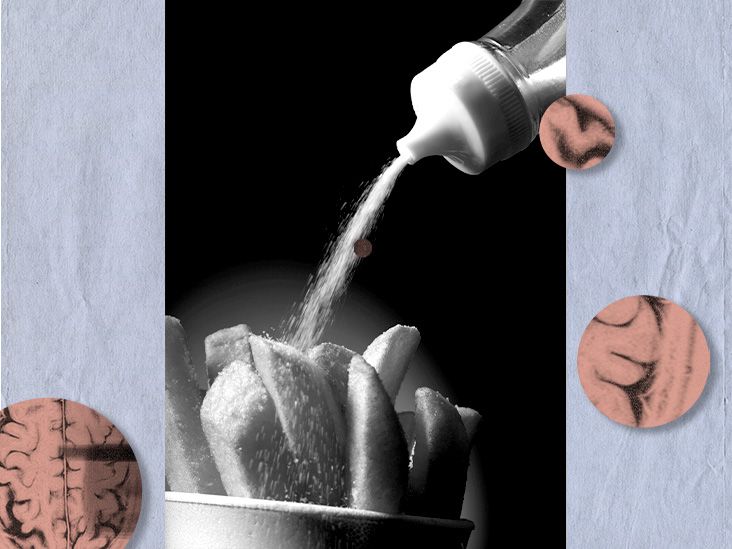Many people associate hyperfixation with attention deficit hyperactivity disorder (ADHD). A person with ADHD may also experience depression, possibly following a period of hyperfixation.
Hyperfixation describes an intense and prolonged state of focus on a particular activity, person, or object. A person may appear to have difficulty focusing on anything beyond the object of hyperfixation, which is typically something they find fun or interesting.
Anyone can experience hyperfixation, but people with ADHD may be more likely to experience it than people without ADHD. Healthcare professionals define ADHD as a developmental condition that is characterized by persistent symptoms of inattention, hyperactivity, or impulsivity that interfere with daily life or development.
Depression is a mood disorder that can cause mental and physical symptoms, such as persistent sadness and difficulty sleeping.
This article explores whether there is a link between hyperfixation and depression. It also discusses signs of hyperfixation and tips for managing depression following a period of hyperfixation.

People should note that little research exists on the link between hyperfixation and depression, as well as on the phenomenon of hyperfixation itself.
A
The
A
The Attention Deficit Disorder Association (ADDA) suggests that hyperfixation may also be a coping mechanism for people with depression. A person may find that focusing on something fun distracts them from negative thoughts and feelings.
The ADDA also states that people with ADHD may be more likely to experience hyperfixation.
In summary, current research has not identified a direct link between hyperfixation and depression. However, people with ADHD may experience hyperfixation more often than people without ADHD. Depression can also occur alongside ADHD.
Therefore, a person with ADHD may experience symptoms of depression following a period of hyperfixation. This may be because they subconsciously use hyperfixation as a coping mechanism for depression. However, there is no scientific research to support this specific theory.
ADHD resources
Visit our dedicated hub for more research-backed information and in-depth resources on ADHD.
The ADDA notes that hyperfixation may be different for everyone.
A 2021 study described it as a phenomenon in which someone is
Signs of hyperfixation may include:
- difficulty stopping or switching activities
- losing track of time
- ignoring personal needs
- becoming detached from surroundings
- neglecting day-to-day tasks and responsibilities
- focusing on minor details
Examples of hyperfixation can vary from becoming engrossed in a hobby, like gardening or painting, to a spontaneous activity, like watching clouds, to work activities, like writing a report. In a 2023 study based on Twitter users with ADHD,
Sometimes, people may find hyperfixation useful, such as if they become engrossed in an activity at work. However, at other times, people may find that hyperfixation disrupts their usual daily responsibilities. In some cases, they may forget to shower, eat, or complete important tasks.
What is your clinical experience with hyperfixation?
“It is not uncommon for my patients with ADHD to report hyperfixation on tasks, usually tasks they enjoy.
“If that hyperfixation on a particular task or activity happens to the neglect of more urgent matters or leads to negative consequences (such as not getting an assignment turned in on time or being late for a deadline at work), it can definitely affect a person’s mood. It may not meet the full criteria for major depressive episode, but mood can be affected, and people may report a subjective sense of depression.
“People also report some irritability if they are interrupted when hyperfixating on a particular topic, and they may interpret this as a sign of depression.”
— Nicole Washington, DO, MPH
Anecdotal reports from social media users suggest that some people experience symptoms of depression following periods of hyperfixation.
There has been no scientific research into this phenomenon. However, people may find the
- talk with people they trust about how they are feeling
- try to exercise, even a brisk walk may help boost someone’s mood
- avoid using substances like alcohol, nicotine, unprescribed medications, or recreational drugs
- try to maintain a regular sleep schedule
- eat regular, healthy meals
- delay making important decisions until they feel better and discuss these decisions with loved ones
- break up big tasks into smaller ones and decide what tasks need to get done urgently and what can wait
- try something new, this may range from a whole new hobby to watching a television series they have not seen before, for example
People with ADHD
A person should speak with a doctor if they experience symptoms of depression that last for at least 2 weeks. People should call 911 if they are experiencing suicidal ideation.
Help is out there
If you or someone you know is in crisis and considering suicide or self-harm, please seek support:
- Call or text the 988 Lifeline at 988 or chat at 988lifeline.org. Caring counselors are available to listen and provide free and confidential support 24/7.
- Text HOME to the Crisis Text Line at 741741 to connect with a volunteer crisis counselor for free and confidential support 24/7.
- Not in the United States? Find a helpline in your country with Befrienders Worldwide.
- Call 911 or your local emergency services number if you feel safe to do so.
If you’re calling on behalf of someone else, stay with them until help arrives. You may remove weapons or substances that can cause harm if you can do so safely.
If you’re not in the same household, stay on the phone with them until help arrives.
Anyone can experience hyperfixation, but it may be more common in people with ADHD, according to the ADDA. Depression can occur alongside ADHD, and the ADDA notes that hyperfixation may be a coping mechanism for symptoms of depression.
However, people should note that there is a lack of research into the link between hyperfixation and depression, as well as into hyperfixation itself.
Anecdotal reports suggest that some people experience symptoms of depression following a period of hyperfixation. Tips to help manage depression include regular exercise and talking with loved ones.
A person should speak with a doctor if hyperfixation is interfering with their usual daily activities or if they experience symptoms of depression that

